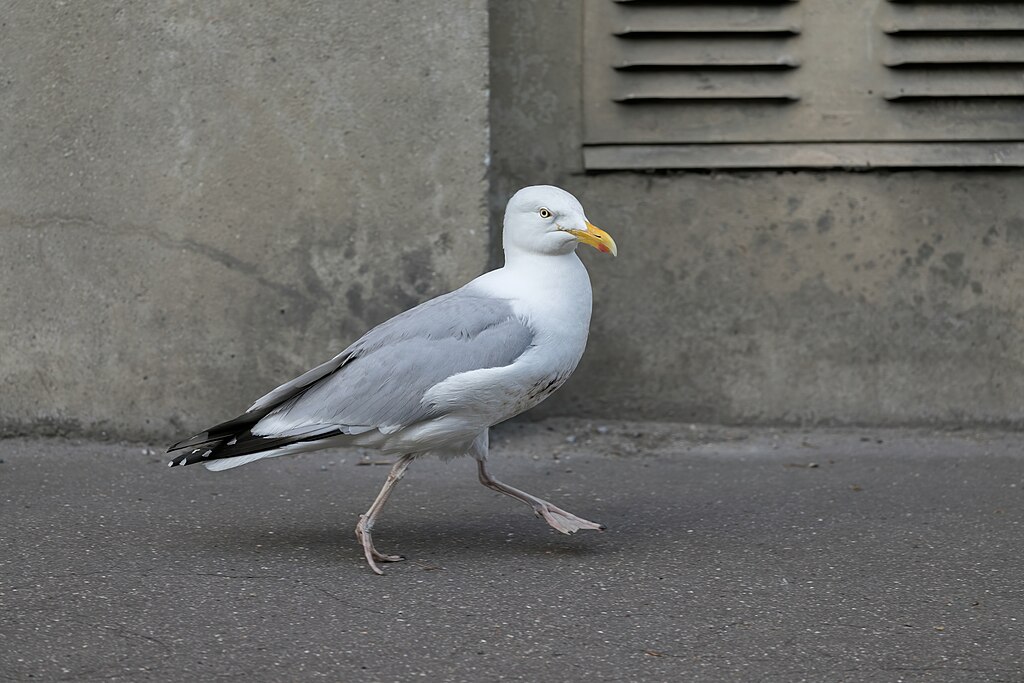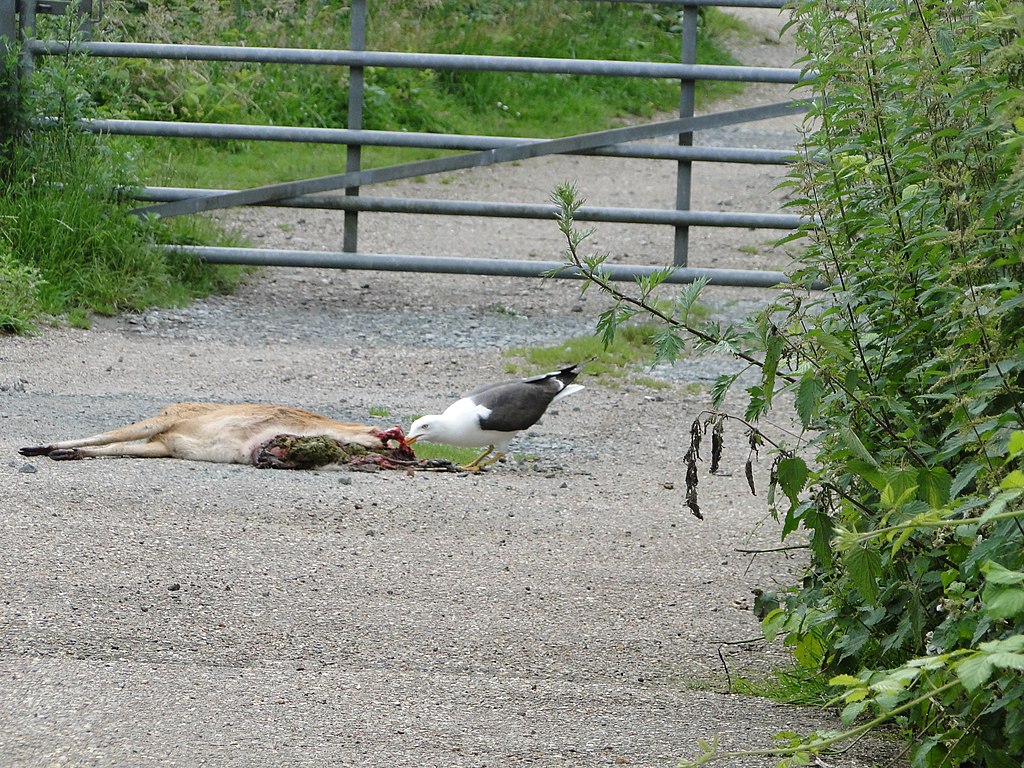Seagulls are a familiar sight along the UK’s coasts, parks, and urban areas. These intelligent and adaptable birds have garnered much attention, but one question many people ask is, “How long do seagulls live?”. In this post we’ll answer the question.
Quick Answer: Very broadly, seagulls can live anywhere from 10 to 20 years.
The most common species in the UK, the Herring Gull (Larus argentatus), often lives around 12 to 15 years, but some individual Herring Gulls have been said to be much older. According to one source, the maximum age is 49 years.

However, it’s worth noting that seagulls have varying lifespans depending on the species of gull, their living environment, the abundance of food available, and threats they face.
Factors That Affect Seagull Lifespan
- Species: Different species of gulls have different life expectancies. Larger species like the Herring Gull tend to live longer than smaller species.
- Predators and Environmental Threats: Seagulls face threats from natural predators, including larger birds of prey and humans, particularly through habitat loss and pollution. Human interactions, especially around urban areas, can shorten their lifespan due to accidents with vehicles or malicious human behaviour.
- Food Availability: In areas where food is abundant, seagulls can thrive, leading to longer lives. However, reliance on human-food scraps as food sources, such as discarded waste, can negatively impact their health and lifespan due to malnutrition or exposure to harmful substances.
- Breeding and Nesting Success: Seagulls that breed successfully and nest in safe environments are more likely to live longer. In coastal regions seagull populations tend to nest in cliffs which keep them quite safe.
Seagull Behaviour and Adaptability
Seagulls are known for their intelligence and ability to adapt to different environments. They are opportunistic feeders, consuming anything from fish and crustaceans to human leftovers or roadkill. It’s not uncommon for hungry gulls to swoop down and snatch food out of the hands of people, or to chow down on a dead mammal. This adaptability has allowed them to flourish in urban areas.

Why are Seagulls Protected?
Seagulls are protected in the UK under the Wildlife and Countryside Act 1981 because they play a crucial role in ecosystems. These birds help maintain balance by controlling pest populations and cleaning up waste, which benefits the environment. Protection is also essential due to the decline in certain seagull species, such as the Herring Gull, whose numbers have decreased due to habitat loss, pollution, and reduced food sources caused by overfishing. The legal protection ensures that their populations remain stable and that they are not harmed or unnecessarily disturbed.
How You Can help
- Avoid feeding them human food, like fried fish and chips, which is very unhealthy for them.
- Properly dispose of waste to limit harmful materials they may ingest i.e. be careful what you put into open public bins or leave laying around when visiting a seaside area.
- Support local efforts to protect coastal habitats, which are vital for their nesting and breeding.
Seagulls are resilient creatures, and with proper care and environmental management, they can continue to be a part of our seasides.
Is it Legal to Kill Seagulls in the UK?
In the UK, it is illegal to kill or harm seagulls under the Wildlife and Countryside Act 1981. This legislation protects all wild birds, including seagulls, their nests, and eggs. However, under certain circumstances, such as public health risks or damage to property, individuals or pest control professionals can manage or remove seagulls without killing them. It’s essential for pest control technicians to follow legal procedures, as killing seagulls can result in prosecution.
What Should I Do if I Have a Seagull Problem?
If you’re facing a seagull problem, especially if they are nesting or causing a nuisance, it’s important to avoid harming them due to their legal protection. Here are a few steps to manage the issue:
- Prevent access to food by securing waste bins, and other food sources.
- Deter nesting: Install bird spikes or netting to prevent them from settling on your property.
- Seek professional help: Contact a pest control service, like Merlin Environmental Solutions, for highly effective, yet legal and humane seagull management.

